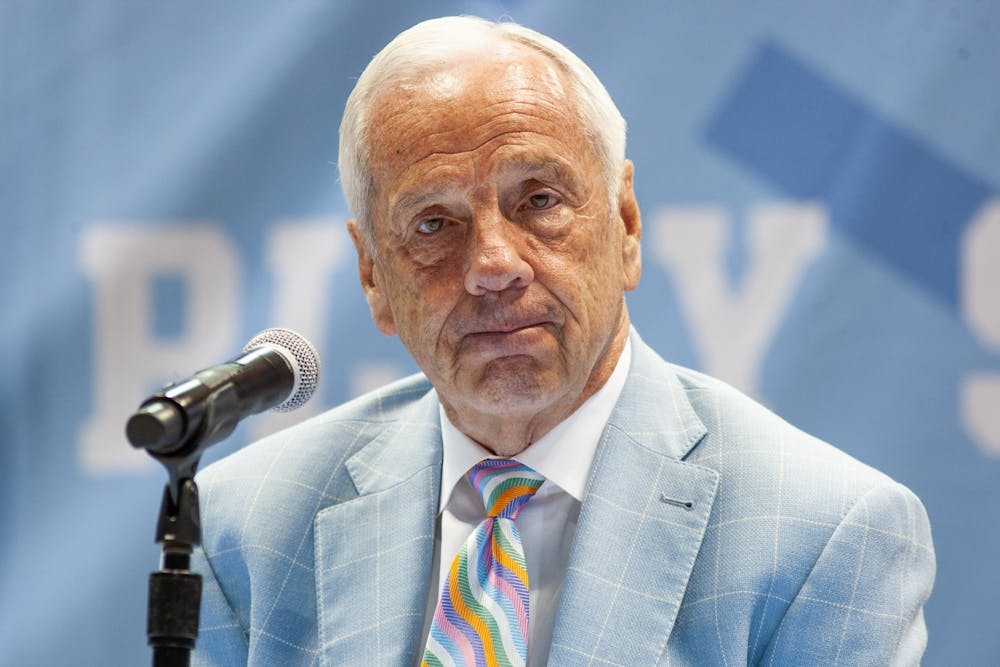Impostor syndrome is an institutional problem at UNC, and Roy Williams’ retirement last week is proof.
We all sat teary-eyed as coach Williams repeated over and over that he was “no longer the right man for the job.” Here was a man who had reached the mountaintop in his field, yet even he felt inadequate. Williams laid bare his emotional wounds of the past years and the ways he began to doubt his own abilities. The way he felt undeserving of his accolades, championships and even the devotion of his own players.
First described by psychologists Suzanne Imes and Pauline Rose Clance in the 1970s, impostor syndrome is an overwhelming sense of self-doubt and feeling like a fraud. People who experience impostor syndrome have difficulty internalizing their successes, and it’s often linked to things like anxiety, depression and burnout.
Of course, an environment like UNC is a breeding ground for impostor syndrome — a place of high achievers in every facet of life, from the court to the classroom. It can be hard to appreciate accomplishments in a place that perpetually forces us to compare ourselves to our peers. Williams’ decision to hang it up last week is emblematic of how deep those feelings run throughout this University.
So if even one of the winningest coaches in college basketball history is feeling inadequate, how are we expected to stand a chance?
About 20 percent of college students experience feelings of impostor syndrome, and those numbers are even higher among minorities and first-generation students. These feelings of inadequacy are magnified during the spring months, as the constant stream of “personal news” announcements and summer internship hirings floods our Twitter and LinkedIn feeds.
When we are expected to keep churning out work and constantly comparing ourselves to our peers, it can be hard to slow down, or even to know when we’ve done enough.
Should you stop the clock or just keep pressing forward? It’s hard to call a timeout or give up the foul when you see your peers grinding. But it’s important to remember that they are just like you.
None of us are superhuman, and for that reason, we all need a break sometimes. Take a step back, call the timeout, draw up the right play and when you break from the huddle, remember what you came here to do — complete your degree at a major public university.




